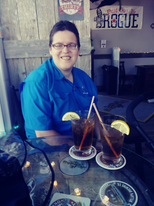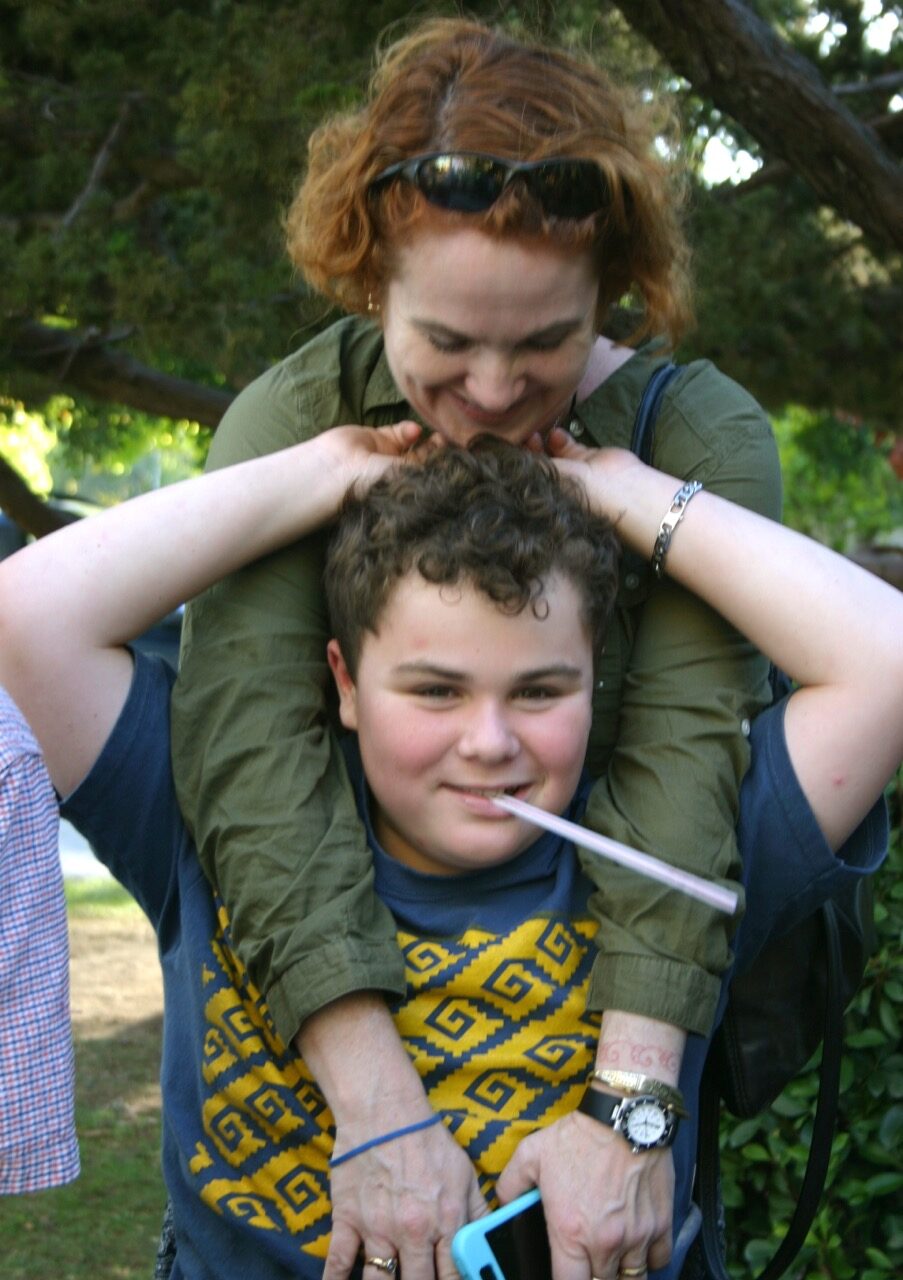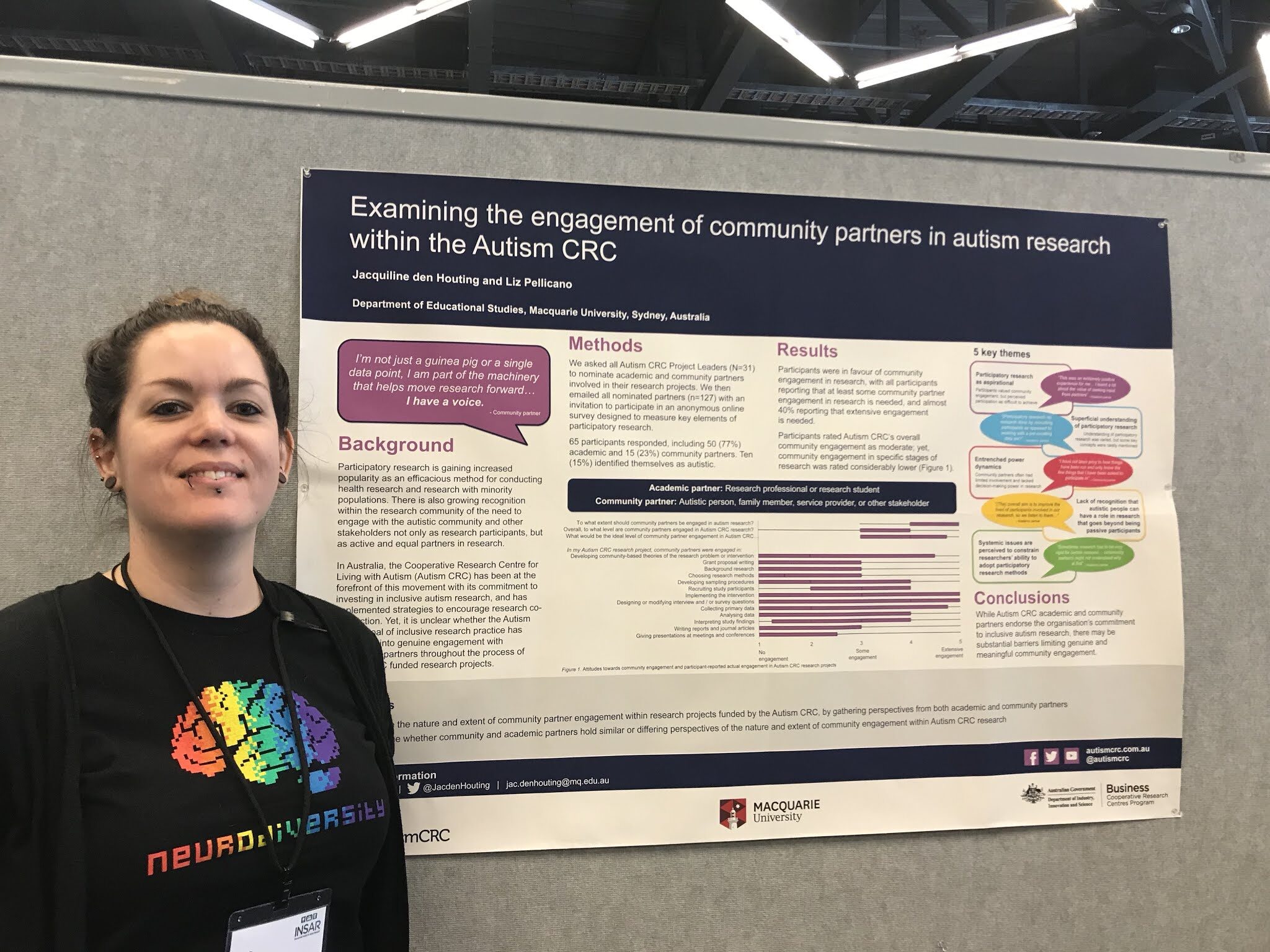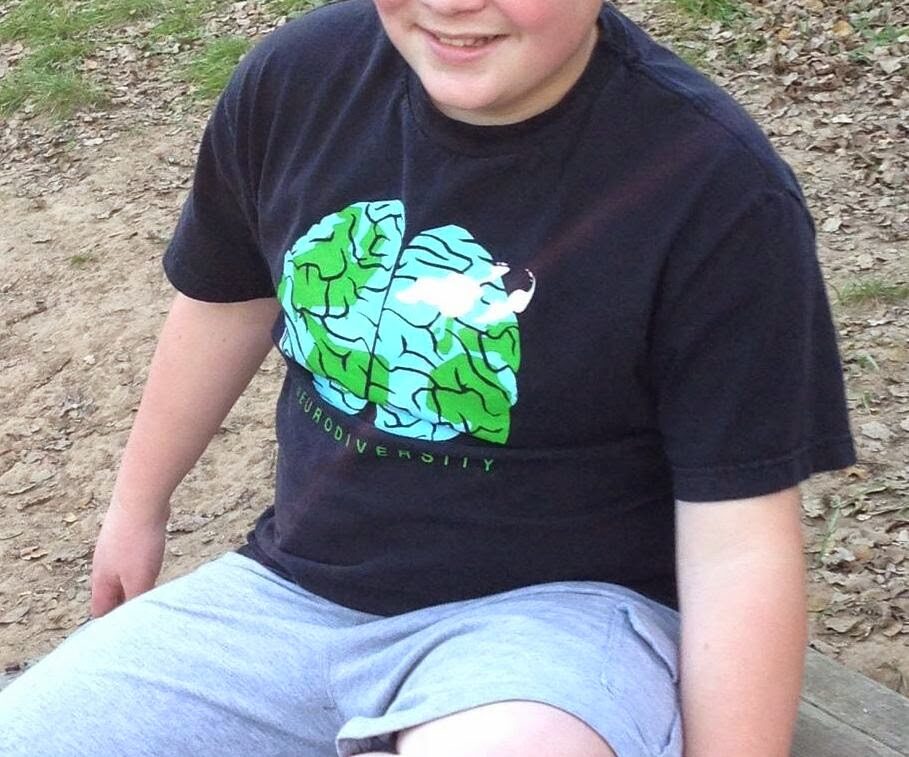This idea that people with intellectual disabilities cannot learn is a very dangerous idea and it leads to us being harmed. I think it is important to autistics with intellectual disabilities that we get the support to learn.
Tag: community
Shannon Des Roches Rosa www.squidalicious.com Content note: This article discusses abuse and murder. Photo © Steve Silberman [image: a white woman, standing behind a white teen boy with brown curly short hair. He is looking at the camera. Her arms are over his shoulder, his arms are up and tickling under her chin.] When parents like me talk about our kids with disabilities and intense support needs, we have to be thoughtful. We need to make it quite clear that our kids are much-loved and very awesome human beings. We should never, ever state or imply that any challenges we face as a parent are our children’s fault. We need to handle their privacy with delicacy. And we shouldn’t accidentally enable disrespect towards children who are already too-frequent magnets for morbid fascination, and pity. But we do need to talk, because our parenting gig is not like other parenting gigs.…
Shannon Rosa Senior Editor The TPGA team attends INSAR, the annual meeting of the International Society for Autism Research, annually and has done so for eight years. We participate as journalists covering important autism research for our community, and also from our combined personal investments as parents of high-support autistic teens, autistic self-advocates, and autism professionals. I found INSAR 2019 to be the most progressive annual INSAR meeting since I first started attending in 2011, going by TPGA’s priorities of spotlighting research addressing the health and well being of existing autistic people, centering improved autistic quality of life as an optimal outcome, and increasing and acknowledging participation of autistic people themselves. I also appreciate seeing an increasing emphasis on autistic people and their families’ day-to-day under-recognized concerns, including co-occurring conditions like GI issues and sleep disturbances, practical considerations of transitions to adulthood, suicidality and other mental health matters, physical activity,…
When we deny the validity of self diagnosis, we fail to recognize how broken health care systems can be. We effectively restrict our support to those privileged to afford a formal diagnosis.
Maxfield Sparrow unstrangemind.com Photo © barbara w | Flickr/Creative Commons [image: Hands on a typewriter keyboard, at a sunny wooden desk, next to a drink on a crocheted white doily, amidst some plucked green leaves.] The last decade has seen a blossoming of blogs, articles, books, and documentary films about autism, authored by actually Autistic people. This is an exciting time of growth for Autist-created content about autism, and I want to encourage all Autistic people to document their lives: whether in a private journal, or to share with the public. There are great personal and community benefits that come from Autistic people writing about our lives—especially when we write about emotions, victories, and challenges and not just the factual events by themselves, although any autobiographical writing is helpful to the writer as well as to others if they decide to share what they’ve written. Michel Foucault, the postmodern philosopher,…
[image: Black horizonal rectangle with white text on the left reading “Association For Autistic Community,” and a green, blue, and red infinity sign on the right.] Zoe Cannon When I decided to go to the first Association for Autistic Community Conference in 2014, I had been lurking on the outskirts of the online autistic community for years. At first I wasn’t sure whether to go at all. Aside from the practical issues — travel drains my inner resources like nothing else — I didn’t know whether I was willing to step into a group of autistic people and claim that I was one of them. They might tell me I was lying; they might turn me away. But I was hungry for a taste of belonging, hungry enough to face packing and plane tickets and a crowd of strangers … and if I didn’t belong, I would rather find out…
The specific learning needs of Autistic students are not always met in traditional special education, or even in specialized autism classes or schools. We talked with Susan Walton, founder of the new OASIS school near Santa Cruz, California, about ensuring her autistic son had access to an educational environment that not only helps him learn, but lets him thrive. TPGA: Tell us about OASIS. Who are your ideal students? [image: the OASIS school sign outside an exterior building door.] Susan Walton: OASIS, the Outdoor Autism and Special Issues School, is a new Non-Public School in Freedom, California, which is in Santa Cruz county. We’ve developed a program that we are excited to offer to new students. We serve seriously autistic students between Junior High and school completion. But more specifically, we cater to those autistic students who need a lot of activity. Our students crave movement and need variety. They…
TPGA is observing Autism Acceptance Month by featuring accounts from autistic people about the differences accommodations (or lack thereof) make in their lives. Today, Finn Gardiner talks about being the “truest, best self” he can be, tackling the “politics of shame head-on,” and recognizing “that I could live with my autistic, black, queer, trans self without guilt just for being alive.” Finn Gardiner [image: Selfie of a smiling black person with shaved hair & rectangular gold-rimmed glasses.] Finn Gardiner www.expectedly.org My path to autism acceptance and rejecting the politics of shame came along with my recognition of the other intersections I experience: recognising my gender identity, fighting internalised racism, and defining and following a path that was based on my own self-determined goals — rather than what parents, professionals, and other authority figures around me deemed appropriate. My childhood and adolescence were steeped in the politics of shame. Family members…
TPGA is observing Autism Acceptance Month by featuring accounts from autistic people about the differences accommodations (or lack thereof) make in their lives. Today’s story is from Christine Langager, about being an autistic parent of an autistic child — and the frustration of often being excluded from autistic and autism-and-parenting communities when by definition one belongs to both. Christine Langager Photo © Christine Langager [image: Selfie of white woman with long braided light brown hair] As a child, I never fit in Always on the fringe, always looking in As an adult, it has always been more of the same Never fully clicking, but making my way I met the love of my life, and finally felt that I had a place to belong We started our family, and I looked forward to more ways to connect As our first son got older, his intensity was clear Play date invitations…
[Image description: Close up of a black t-shirt with a blue and green combined brain/planet earth illustration, with the word “NEURODIVERSITY” under it. Worn by a partially visible teen boy with beige skin and gray shorts.] My son chooses his outfits each day with care and deliberation, and an eye for specific color combinations. One of his favorite shirts is a Neurodiversity tee, which ranks second only to the Catbus tee in terms of “if it is not clean there will be much sadness and reiteration of sadness so please just make sure it is clean.” For those unfamiliar with Neurodiversity, it is a pride-tinged term used by folks in the autism and autistic communities to describe themselves: “The idea of neurodiversity was developed by autistic people in opposition to the pathologizing model. According to them autistic people are not disordered. They have a different sort of order. Their brains…









